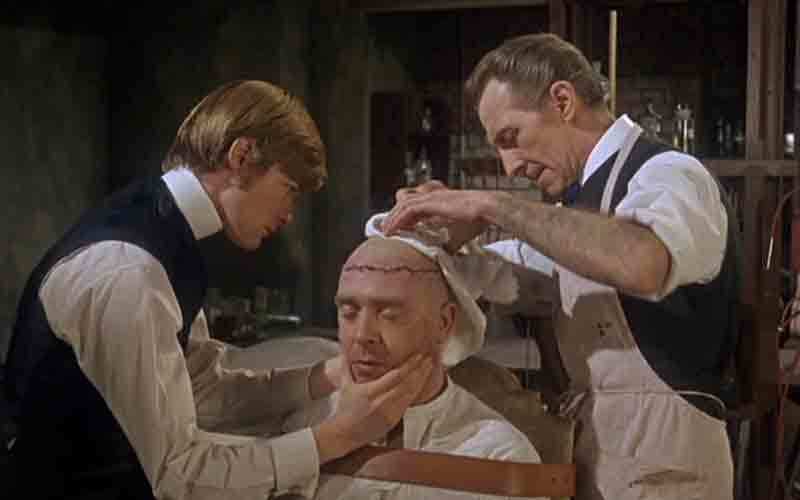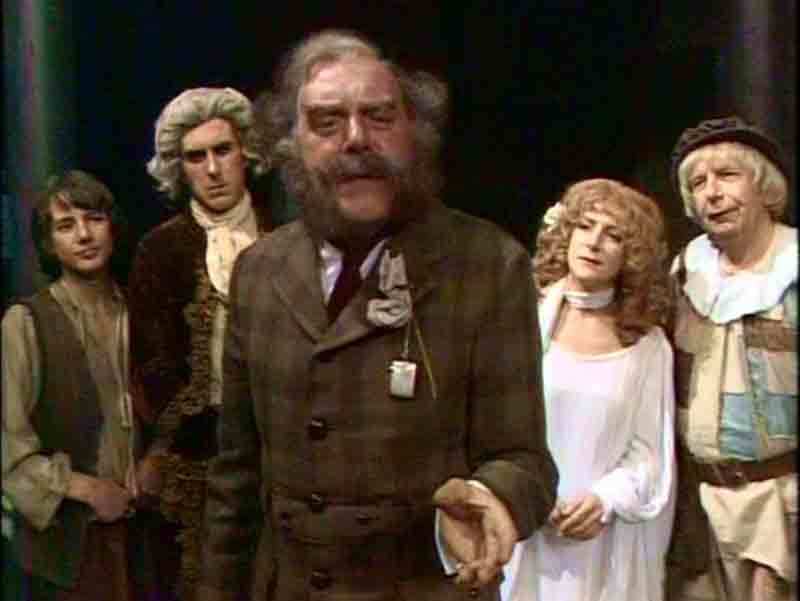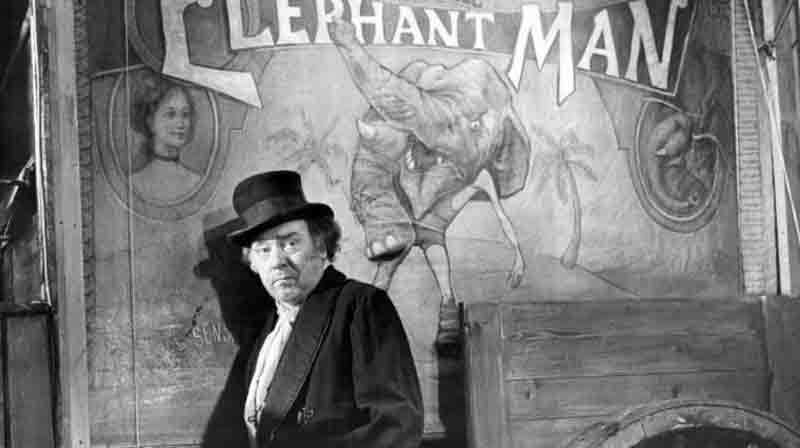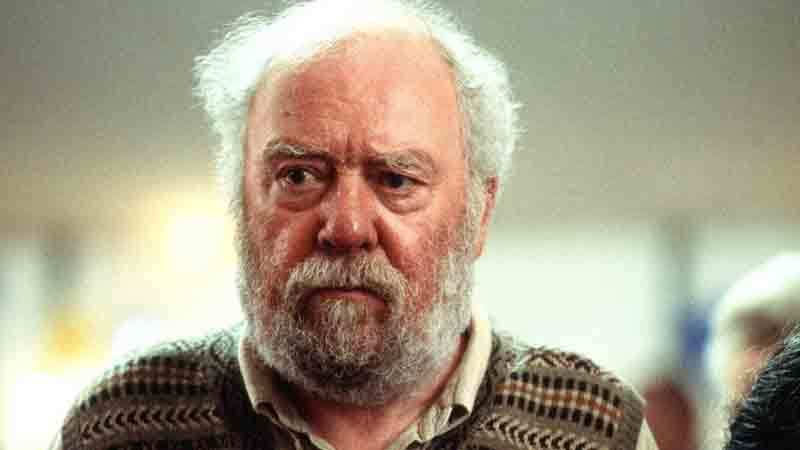Freddie Jones, one of Britain’s most cherished performers has died, aged 91. RICHARD PHILLIPS-JONES looks at his career in horror and other strange films…
The phrase “national treasure” is one which is over-used, and frequently ill-applied, but it’s difficult to think of a more appropriate term for Freddie Jones (1927-2019).
His appearances in the horror genre were but a fraction of his immense contribution to film and television, but made a massive impact on young horror fans seeing them on late night TV screenings.
Some would say that his performance as the creature in Frankenstein Must Be Destroyed (1969) was the best in the whole of Hammer’s Frankenstein series.

As the Baron’s former associate, Professor Richter, Jones turned in a bravura performance which truly conveyed desperation and despair, and provided a rare glimpse of the creature dishing out retribution on the deranged doctor in the film’s fiery climax.
A very different academic role for Hammer came in The Satanic Rites Of Dracula (1973), as Professor Julian Keeley, tortuously compelled by the Count to develop a form of plague with a view to wiping out the human race, thus ensuring the Count’s own eternal peace.
His appearance was a highpoint in an uneven film which was big on ideas, if not always so hot on the execution.

Elsewhere, Jones made three episodes of Thames’ TV series Mystery And Imagination.
Regretfully, Lost Hearts (1966) and The Telltale Heart (1968) are missing, presumed lost, but 1970’s Sweeney Todd can still be enjoyed, Jones getting every bit of mileage out of the title role as one can muster in a TV studio.
More TV chills were aimed directly at a young audience, with turns as Dai in HTV’s Children Of The Stones (1976) and Sir George Uproar in Granada’s The Ghosts Of Motley Hall (1976-78).
A significant career in horror
Although Jones’ actual number of horror appearances in this period was small in his massively expanding filmography, they were clearly impactful on the young audiences who came upon them.
The high regard in which those fledgling horror fans regarded Jones was reflected when four of them, namely The League of Gentlemen, featured him in their 2000 Christmas Special as Dr. Magnus Purblind, who passes his curse for bestowing instant mortality on any animal he comes into contact with upon the unfortunate Chinnery family of veterinarians.
Come 1980, Jones found himself providing solid, chilling support for young director David Lynch in The Elephant Man.

As sadistic sideshow owner Bytes, exploiting the disfigured John Merrick (John Hurt) for every penny he could, Jones was utterly abhorrent.
(The cinematographer on the film was none other than Hammer alumnus Freddie Francis.)
Jones and Lynch clearly took to each other, and the two would work together again for Dune (1983), Wild At Heart (1990) and the TV mini-series Hotel Room (1993).
In the course of his life as an actor, Jones played Emperor Claudius, Santa Claus, Humpty Dumpty and Socrates.
Freddie Jones, a versatile actor
He played doctors, undertakers, vicars, bishops, policemen, psychiatrists and lords.
He appeared in comedy, tragedy, thrillers, chillers, and was even a storyteller on Jackanory.

For all that, the above list barely scrapes the surface of his career.
That such a fine actor should end his screen tenure with a long stint on TV’s Emmerdale (playing Sandy Thomas) was seen by some as a waste of his talents, and a loss to more highbrow cinematic or theatrical arenas.
The less snobbish members of the audience would have considered it a well-deserved reward: A steady pay cheque and an opportunity to really get under the skin of a character over a 13-year period.
On his Twitter feed, David Lynch summed up his feelings for Jones succinctly: “I loved, loved, loved Freddie Jones. Man-o-man will he be missed.”
I concur wholeheartedly.


